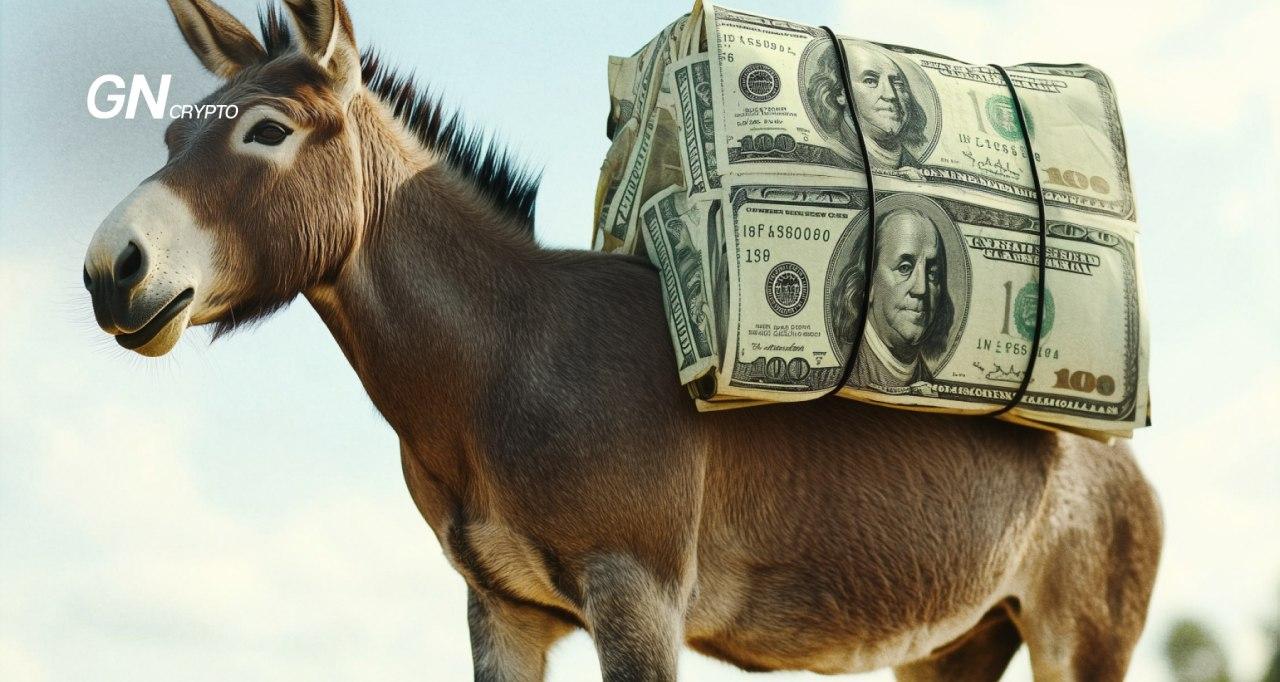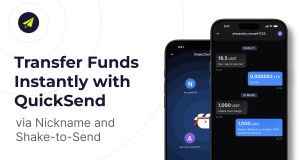Don’t Be a Money Mule: How to Avoid Scams

Illegally earned funds from fraud or drug trafficking need to be laundered somehow. Criminals, unwilling to risk using their own bank accounts, have adapted by using intermediaries, known as “money mules.”
On this page
Individuals with no history of illegal activity may search for extra work on job boards or local chat groups. Eventually, they stumble upon an enticing job listing that requires no experience, offers high pay, and demands no special skills. The only requirement is to open a bank account to handle “client funds.”
The “employer” then funnels large sums through this individual’s account, instructing them to withdraw the cash. At this point, the unsuspecting individual doesn’t realize they’ve become part of a fraudulent scheme.
One day, law enforcement arrives, questioning the person about the origins of the funds and their role in the transaction chain. It’s then they realize the truth: they’ve been a money mule without knowing it.
In this article, we’ll explain who money mules are, why they’re used, how they’re recruited, and who manages them. We’ll cover the most common scenarios involving money mules and how to spot the warning signs early on.
How Money Mules Are Used
The operation of money mules is similar to how people use VPNs to mask their true location and stay anonymous online.
With money mules, the process is comparable: when criminals need to launder money or move funds through bank accounts, doing it directly would be too risky and easily traceable. Therefore, they turn to money mules.
These individuals aren’t used only for financial transactions; they may also have assets registered in their name, sign documents, or receive shipments on behalf of the criminals.
The idea is to ensure that the person behind these activities keeps their own identity hidden, allowing the real orchestrators to remain anonymous.
Black Market Schemes Involving Money Mules
In black market schemes, money mules participate in blatantly illegal activities, such as laundering funds obtained through criminal activities, or carding (purchasing goods with stolen credit cards for resale).
Money mule network in online dating scams. Mules marked as “donkeys.” Source: researchgate.net
Cash-Out Operations
One of the main tasks for money mules is cashing out illicit funds. Criminals receive money from illegal activities and need a way to convert it into cash without directly exposing themselves, so they recruit mules to perform this task for a small fee. The mule’s role is straightforward: receive the money in their account and then transfer it to a specified destination. While this process may seem simple and low-risk to the mule, they are handling “dirty” money with all the associated legal consequences.
Drug Trade
Money mules open bank accounts that receive payments from drug buyers or sellers. Typically, these individuals are rewarded with 30–40% of the funds received. However, as we’ve seen, this income is unlikely to bring them any fortune, as it comes with substantial legal risks.
Carding
Carding involves the criminal use of stolen credit card information. Criminals obtain a victim's card details but can't simply withdraw funds to their own accounts—so they enlist money mules.
One approach is to transfer the victim's funds directly to the mule's account. However, due to bank security measures like 3-D Secure, this is rare; an SMS confirmation is typically sent to the card owner for verification.
A more common tactic is using the stolen card to purchase goods. Criminals make online purchases up to the card’s limit for items like electronics, clothing, streaming subscriptions, taxi rides, and more.
These goods or services are later resold at prices well below market value, with payments going to the mules' bank accounts.
Carding using e-commerce platforms. Source: unit21.ai
Phishing Schemes
Scammers set up fake websites or send fraudulent emails to capture users' personal information. In these cases, money mules receive funds acquired through phishing into their accounts.
Gray Area Schemes Involving Money Mules
Gray area schemes may appear less risky but still operate at the edge of legality.
For instance, scammers use mules to circumvent restrictions on investment platforms or cryptocurrency exchanges, enabling the creation of multiple accounts to participate in various promotions. These schemes are often seen on ICO platforms to increase the chances of securing an allocation.
Betting Schemes
Money mules are widely used in schemes involving betting companies, primarily to bypass restrictions. For instance, if a player with significant betting activity is banned, they may use mules to continue placing bets.
Mules are also commonly involved in “bonus abuse” (exploiting promotions) and “betting arbitrage” schemes.
- Bonuses: Betting companies often offer incentives, such as $20 for opening a new account. Fraudsters exploit this by creating multiple accounts, earning a bonus for each one.
- Betting Arbitrage: Occasionally, odds differ across betting platforms, creating an arbitrage opportunity where a user can secure a profit regardless of the bet outcome.
Betting companies are vigilant about identifying “arbitrage bettors” and often impose penalties such as account bans, limits on bet amounts, or other restrictions. To avoid these sanctions, arbitrage bettors turn to money mules.
Crypto Exchanges and ICO Platforms
Like betting platforms, crypto exchanges run various promotions to attract new users. Centralized exchanges (CEXs) typically incentivize them by offering rewards for reaching specific trading volumes, where users need to generate a certain volume to earn a reward.
Money mules are often used to amplify these activities. If a promotion offers $10 per account, using 15 mules can increase total earnings to $150.
Such accounts are frequently sold on specialized platforms or OTC markets. In some Telegram groups, completing KYC (registering a new user) or purchasing a verified account on popular exchanges costs as little as $6–$7.
Account sales on the OTC market. Source: telegram.org
Money mules are also used to increase the chances of receiving an allocation in ICOs. Initial Coin Offerings (ICOs) on platforms like Coinlist allow projects to raise funds by selling tokens to early backers.
With limited tokens available, not all participants receive allocations. Instead, they’re distributed to only around 10-20% of users.
Imagine an ICO with 10,000 participants but only 1,000 allocations. Participating with just one personal account gives you a 10% chance of allocation, but with 10 accounts, your chances rise to 65.1%.
Legally, this practice is allowed, but ethically, it’s questionable. Coinlist has taken measures against this, introducing a karma system and requiring users to hold their intended purchase amount in their balance before the allocation. Previously, users received their allocations first and could then deposit funds, leading some to miss their allocations and disrupt the ICO structure.
Today, ICO mules are less prevalent, but during the peak of token sales in 2021, they flooded the market. You might even know someone who bought Coinlist verification for $5–$10 back then.
Who Are Mule Herders and What Is Their Role?
Mule herders are individuals responsible for recruiting, coordinating, and overseeing the actions of mules in various fraudulent schemes. They find people to carry out tasks that fraudsters don’t want or can’t do under their own names.
These herders recruit new mules, often through job listings on employment platforms, social media, messaging apps, or forums. They advertise the work as a legitimate side gig with quick earnings, usually concealing the true nature of the job.
Mule herders ensure that instructions are followed, monitor actions, and provide training to their “recruits.” They explain how to open bank or crypto exchange accounts, complete application forms, and specify which information to use. Herders also manage the flow of funds and earn a percentage from each successful transaction.
Additionally, they are responsible for maintaining the confidentiality and security of the scheme, often keeping the identities of the masterminds hidden from the mules.
Enforcers: Might Makes Right
While the mastermind is the central figure in a mule scheme, control over the funds ultimately rests with the mule. It’s not uncommon for mules to cash out and disappear with the criminals’ money.
When this happens, “enforcers” — individuals hired by mule herders to apply pressure on the mules — are called in.
Usually, these enforcers are young, athletic men prepared to use force if necessary. Their job is to intimidate the mules into staying in their role and adhering to the terms of their “cooperation.”
The bouncer from the film Lock, Stock and Two Smoking Barrels serves as a classic portrayal of enforcers in pop culture. Source: youtube.com
Intimidation is their primary tactic. If a mule begins to have doubts, tries to disappear, or becomes suspicious, the enforcers step in. They track down the individual and make it clear that they have no choice but to continue cooperating.
These encounters are often accompanied by threats of physical violence.
The presence of enforcers in these operations helps maintain discipline and control over the mules, binding them to the scheme against their will. This escalates the role of mule herders from mere fraudsters to organized criminals.
How Not to Become a Money Mule: Common Recruitment Tactics
Fraudsters often recruit money mules through online advertisements. On popular job search sites, you might encounter enticing offers: minimal effort, high pay, and flexible hours. These positions are typically described as “payment processing assistant,” “financial agent,” or “transaction processing manager.”
In reality, these “jobs” are part of illicit schemes that require money mules.
Social media and messaging apps are also popular recruitment channels. On platforms like Telegram, Viber, and WhatsApp, groups and channels regularly post these “job” offers as promotional ads, often promising payment for transferring funds or even renting out a bank card.
Some ads openly mention the “requirements.” Source: telegram.org
People may also become mules unknowingly. For example, they might be asked to transfer money on behalf of a third party without being given full details. Sometimes, “employers” request that individuals open an account or card, using tempting promises and assurances of legality.
See These Red Flags? Walk Away!
Recognizing recruitment attempts isn’t always easy, especially when scammers skillfully disguise their intentions. However, certain “red flags” can help you stay alert and avoid becoming a money mule.
- Too-Good-to-Be-True Pay: If you’re offered high pay for minimal effort—especially if the job involves money transfers, sharing your bank details, or opening accounts—be cautious.
- Secrecy and Vagueness: Scammers often avoid specifics. If the job description is unclear and the “employer” evades questions or promises to explain details later, this is a warning sign.
- Unusual Requests for Bank Details: If they ask you to open an account in your name, provide access to an existing account, or share your card details temporarily, this is a serious red flag.
- Romantic Requests with Financial Favors: If a new romantic partner asks you to transfer funds or use your bank account, this may be a recruitment tactic.
- Assurances of Safety and No Risk: Be wary of any promises of “total security” or “zero risk” in financial dealings, especially if they involve handling funds or opening accounts.
If you suspect you may have become a money mule, stop all financial transactions immediately and block access to your accounts. Contact your bank to report any suspicious transactions and prevent further losses.
Report the situation to law enforcement to document the fraud and mention any concerns about possible intimidation. Additionally, check your credit history to ensure fraudsters haven’t used your information to take out loans in your name.
The main rule: stay informed. Awareness is your best defense.
The content on The Coinomist is for informational purposes only and should not be interpreted as financial advice. While we strive to provide accurate and up-to-date information, we do not guarantee the accuracy, completeness, or reliability of any content. Neither we accept liability for any errors or omissions in the information provided or for any financial losses incurred as a result of relying on this information. Actions based on this content are at your own risk. Always do your own research and consult a professional. See our Terms, Privacy Policy, and Disclaimers for more details.






























